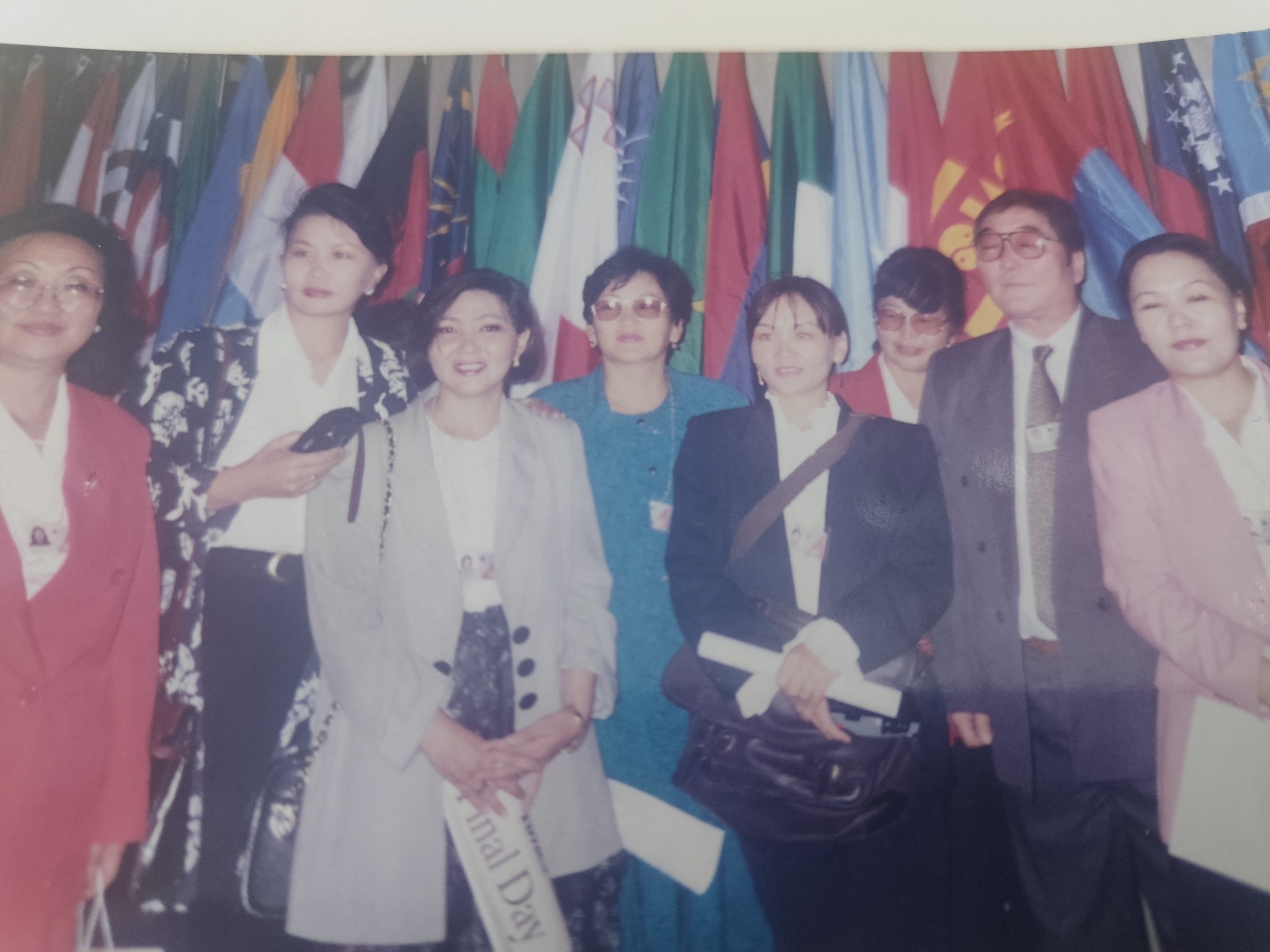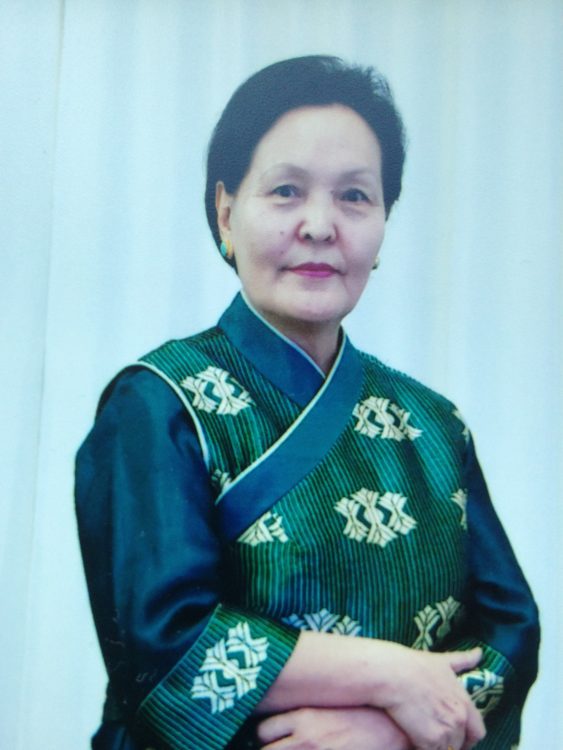HelpAge International is launching a campaign to honour the 30th anniversary of the historic 1995 Beijing Conference by spotlighting remarkable women who attended and helped shape the global gender equality agenda.
30 years of progress and challenges for women’s rights
Delegates from across the world came together at the 1995 Beijing Conference, united by a shared vision to empower women and advance their rights. Among them was a representative from Mongolia, Dr. Enkhjargal Khorloo whose reflections offer an insightful journey through the past three decades of progress, challenges, and hopes for the future.
The spirit of Beijing: A defining moment
“The atmosphere at the 1995 Conference was electric, filled with a sense of purpose and determination,” says Dr. Khorloo. “Our delegation from Mongolia was diverse, including parliamentarians, ministers, professionals, and civil society representatives, all united by a common goal.
I vividly remember the long hours of negotiation as representatives from UN Member States and experts from international organisations worked tirelessly to finalise the Beijing Declaration and Platform for Action. Witnessing its unanimous adoption was truly inspiring – it was a global commitment to improve the lives of women everywhere.”
For many delegates, including those from Mongolia, attending Beijing was an opportunity to push for tangible policy changes back home. “I had high hopes that the implementation of the Platform for Action would bring meaningful improvements. As a government official, my ambition was to contribute to national policies that promote women’s empowerment and gender equality.”

A 30-year reflection on achievements and setbacks
Reflecting on the journey since 1995, Dr. Khorloo acknowledges that while much has been achieved, gender equality remains an ongoing struggle. “There has been undeniable progress, but inequalities persist. The fight is far from over.”
Mongolia’s commitment to gender equality was evident in the swift adoption of its first National Programme for the Advancement of Women in 1996. As the General Director of the Population Policy Department, Dr. Khorloo played a key role in its development. Over the years, several milestones have been reached in her country:
- Improved legal frameworks promoting gender equality
- Greater availability of gender-based violence data integrated into policies and programmes
- Enhanced national coordination mechanisms to ensure multi-sector collaboration
- Increased funding commitments to tackle persistent gender inequalities.
These efforts have translated into real-life improvements. “Life expectancy for Mongolian women has risen from 63 years in 1995 to 76.8 years in 2023,’’ asserts Dr. Khorloo. “Women now hold 25% of parliamentary seats, marking a historic milestone. Maternal mortality has declined dramatically, and digital innovations like E-Mongolia have improved access to services.”
Persistent challenges
Despite these advances, progress has been uneven. “The feminisation of poverty remains a critical issue. In Mongolia, 27% of the population still lives in poverty, with significant disparities between rich and poor.”
Gender-based violence remains a pressing concern, and economic participation for women has seen setbacks. “Women’s labour force participation has declined since 2000, while men’s has increased,” she highlights. “Women also continue to shoulder a disproportionate burden of unpaid care work, limiting their economic opportunities.”
Older women, in particular, face systemic barriers.
Despite progress in social protection, pensions remain inadequate, leaving many older women financially insecure. Employment discrimination persists, and many struggle to access healthcare, particularly in rural areas. Digital literacy gaps further exclude older women from accessing vital services.
Hopes and challenges on the road ahead
As the world marks 30 years since the Beijing Conference, one pressing question remains: has the Beijing Declaration lived up to its promise?
Dr. Khorloo believes that it has in many ways, “but gaps remain – especially in addressing inequalities that deepen over time. Progress has been made, but it is not enough.”
Yet, she remains hopeful – “I have seen firsthand how improvements in reproductive health and social policies can transform lives. The future is not without challenges, but I believe that with sustained effort, gender equality can be achieved.”
For younger and older activists alike, she calls for unity. “Collaboration between generations is crucial. The struggles we fought for in 1995 are not over, but the baton is being passed to a new wave of activists determined to push for real change.”
Her message to today’s decision-makers is clear: “Prioritise reducing disparities and inequalities. Women of all ages deserve the opportunity to live with dignity and security.”
Looking forward with determination
As Dr. Khorloo reflects on the legacy of the Beijing Conference, one thing is evident for her: while progress has been made, the work is far from over. The fight for gender equality is an ongoing journey – one that requires collective action, unwavering commitment, and a determination to ensure that no woman, young or old, is left behind.
 Dr. Enkhjargal Khorloo is a medical doctor with over 40 years of experience in social development and has played a key role in shaping Mongolia’s population and public health policies. She served as General Director of the Population Policy Department and later led Mongolia’s National AIDS Foundation. From 2005 to 2013, she was National Programme Manager for reproductive health and rights at UNFPA Mongolia.
Dr. Enkhjargal Khorloo is a medical doctor with over 40 years of experience in social development and has played a key role in shaping Mongolia’s population and public health policies. She served as General Director of the Population Policy Department and later led Mongolia’s National AIDS Foundation. From 2005 to 2013, she was National Programme Manager for reproductive health and rights at UNFPA Mongolia.
A dedicated advocate for gender equality and public health, Dr. Khorloo has been instrumental in advancing policies for women’s empowerment.
